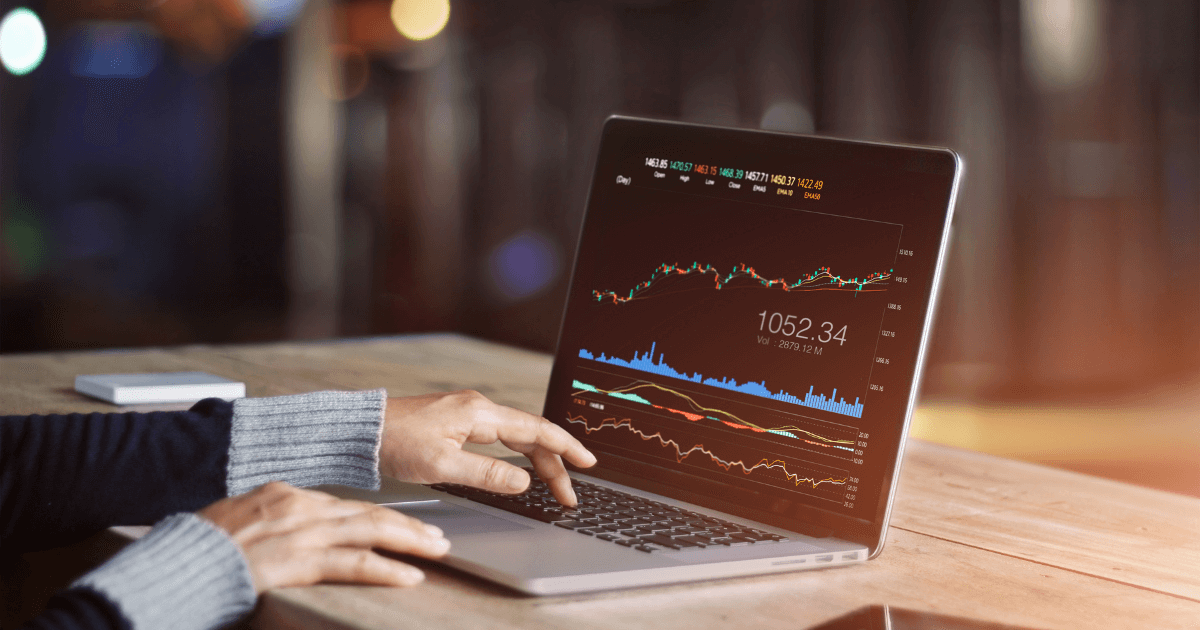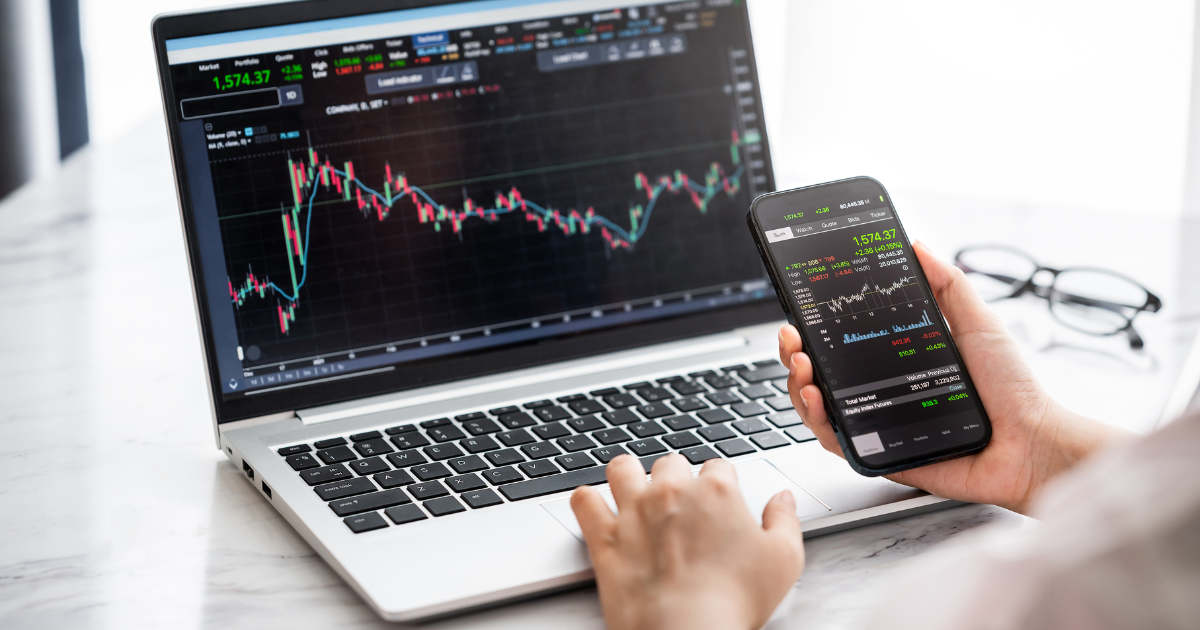What are the best cryptocurrency exchanges in 2025? In this article, you’ll discover what a cryptocurrency exchange is, why it’s so important, and what criteria characterize the best exchanges.
Cryptocurrencies remain a hot topic in trading after more than a decade. Today, almost everyone knows what crypto is – some because they have heard about the incredible value of coins like Bitcoin or Ethereum, others because they use them in their trading strategies.
Cryptos are definitely an interesting instrument if managed properly, but to buy and sell them, it’s necessary to work through an exchange.
What Is a Cryptocurrency Exchange?
An exchange is a digital marketplace that allows people to buy, trade and sell cryptocurrencies.
Some people think that an exchange is to crypto what brokers are to traditional markets, but that isn’t exactly the case. The exchange acts as both a marketplace and a broker. It’s possible to send orders directly to the exchange without having to go through a broker, as is the case with traditional markets.
Trading crypto requires an account with an exchange. The question becomes, which cryptocurrency exchange should I trade in? As we know, dozens of exchanges have been created over the years due to the popularity of crypto, each with its pros and cons.
To help make your choice easier, we first want to provide you with 6 excellent options you could start with to enter the crypto world. After that, we’ll look at the most important parameters that make an exchange great.
The 6 Best Cryptocurrency Exchanges in 2025
We’ll give you a list of Pros and Cons for each exchange. These lists are not exhaustive, but are intended to give you the big picture of each particular operator.
1. Binance
PROs
– Leading exchange by trading volumes.
– Access both spot markets and a variety of derivatives like futures and options.
– Over 350 cryptocurrencies available, making diversification easy.
– Excellent liquidity across all instruments.
– Highly competitive fees, ranging from 0.1% to 5% based on the transaction.
– Integrates seamlessly with MultiCharts, a major benefit for systematic traders.
– Supports Layer1 and Layer2 networks for smooth deposits and withdrawals.
CONs
– Derivatives (options and futures) usage is restricted in some countries.
2. Bybit
PROs
– Access both spot markets and derivatives like futures and options.
– Reliable liquidity across all instruments.
– Supports Layer1 and Layer2 networks for deposits and withdrawals.
CONs
– Restrictions on available futures types (expiry futures only in USDC or inverse; USDT futures only as perpetual contracts).
3. Kraken
PROs
– Among the top exchanges worldwide by trading volume.
– Access both spot markets and futures.
– Over 245 cryptocurrencies available, facilitating diversification.
– Reliable liquidity.
– Supports Layer1 and Layer2 networks for deposits and withdrawals.
CONs
– Derivatives (options and futures) usage is restricted in some countries.
4. Bitget
PROs
– A leader in global derivatives trading volumes.
– Over 847 cryptocurrencies available, making diversification simple.
– Competitive fees for both spot and futures trading.
CONs
– Not compatible with MultiCharts.
– The platform can be complex, which might be challenging for beginners.
5. Deribit
PROs
– Access both spot markets and derivatives like futures and options.
– Good liquidity for crypto-margined futures.
CONs
– Limited compatibility with MultiCharts (spot market visibility is an issue).
– Low liquidity for spot markets and USDT-margined futures.
– Deposits and withdrawals are limited to Bitcoin, ETH, Matic, Solana, XRP, USDC, and USDT.
6. Bitmex
PROs
– Access both spot markets and futures.
– User-friendly platform.
– Integrates with MultiCharts for systematic trading.
CONs
– Limited instruments available and low liquidity.
How to Choose the Best Crypto Exchange
Now that you’ve seen the 6 best Exchanges on the market, we want to show you some parameters that you should always keep in mind when evaluating the quality of an exchange.
Safety
When you buy and sell crypto, your money is entrusted to the exchange. So, the first parameter you need to evaluate is security.
Keep in mind that attempted cyberattacks on crypto platforms and crypto wallets have grown exponentially in recent years, in line with the growth of crypto itself. However, you shouldn’t be frightened out of crypto. The good news is that if you choose a reputable exchange, your chances of falling victim to hackers are greatly reduced.
Transaction fees
Just like traditional brokers, exchanges charge a fee for their services. Depending on your volume of business, the sum of these fees can reach significant figures. Our advice, therefore, is to keep in mind the overall cost, and not be fooled by the fact that the individual percentages are quite low (in some cases less than 0.1 %)
Caution: of course, you shouldn’t choose your exchange just because the fees are low. The priorities always remain safety and reliability.
Available products
As explained in detail in this article, if you want to trade futures in Asian markets, then you need to choose a broker that trades in those markets.
The same goes for the Exchange. There are hundreds of different cryptocurrencies: Ethereum, Litecoin, Bitcoin, Stellar, Polkadot, etc. If you want to buy and sell a specific virtual currency, you must be sure that your exchange allows you to do so.
Liquidity
Liquidity refers to the ease of converting a specific cryptocurrency into different virtual currencies or traditional cash. It is preferable to choose an exchange that has good liquidity. This keeps prices from fluctuating excessively and makes the buying and selling process easier.
Customer service
Finally, it doesn’t hurt to choose an operator who allows some degree of assistance. Unfortunately, customer service is still a struggle for many operators. Even some of the world’s best-known exchanges have received many complaints about their poor customer service.
To sum up: the best cryptocurrency exchanges should be reliable and secure, have a range of financial instruments that you are happy with, be sufficiently liquid, and provide a good level of customer service.
Conclusion
Hopefully this article has helped you understand what separates the best cryptocurrency exchanges from the less valuable ones. As mentioned, crypto is a powerful instrument when placed within a good trading strategy.
Our R&D manager, for example, achieved a 277% return on crypto markets in 10 months.
If you want to learn more about how he managed to achieve this excellent result, we recommend you check out our free webinar: How to Build Trading Systems for Crypto that Have 45-degree Equity Lines.










